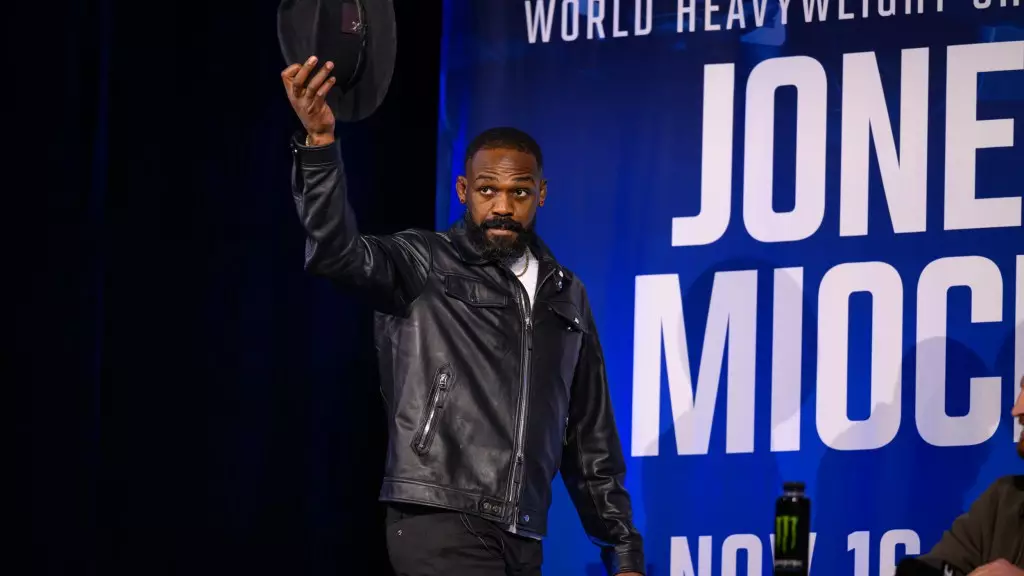In the landscape of mixed martial arts, few names resonate as powerfully as Jon Jones. With an impressive record of 27 wins and only one loss, Jones has made a significant mark in the UFC, showcasing his talent across multiple weight classes. However, as he approaches a title defense against Stipe Miocic at UFC 309, speculation about his potential retirement is raising eyebrows. Esteemed UFC fighter Daniel Cormier has expressed deep concern regarding Jones’ possible exit from the sport, labeling it an “injustice” to both the athlete and the UFC landscape.
Jones’ upcoming fight against Miocic at Madison Square Garden is not just another title defense; it represents a pivotal moment in his career. With the heavyweight division buzzing with talent, the absence of an active Jones would leave a gaping hole. Cormier’s comments highlight a shared sentiment among fans and peers alike: the fight against Miocic should not mark Jones’ farewell. His refusal to unify the heavyweight title with interim champion Tom Aspinall, coupled with his lack of interest in a matchup against light heavyweight contender Alex Pereira, emphasizes a possible reluctance to engage more deeply in the heavyweight fray.
UFC CEO Dana White’s recent statements add further complexity to the situation. White has indicated that if Jones wishes to continue his career, he must either fight Aspinall or walk away altogether. This ultimatum places immense pressure on “Bones,” who has already hinted that a fight with Pereira could lure him back into the octagon post-UFC 309. However, White’s disinterest in facilitating such a bout raises questions about the UFC’s strategy in managing its superstars, particularly those with a legacy as illustrious as Jones’.
Cormier’s insight into Jones’ career choices underscores a broader dilemma faced by elite athletes: knowing when to walk away. While figures like Georges St-Pierre and Khabib Nurmagomedov ended their careers at their peaks, Jones’ situation differs. Cormier argues that not every fighter has the luxury of exiting the sport on their terms. His passionate plea for Jones to remain active signals a desire for closure within the heavyweight division. Cormier recognizes the implications of a Jones retirement—without resolving the conflict with Aspinall, the division risks stagnation.
As anticipation builds for UFC 309, the MMA community awaits with bated breath. Will Jones decide to prolong his career and pursue conflict within the heavyweight division, or will he bow out at the height of his prowess? This pivotal moment not only affects Jones and Miocic but also reverberates through the ranks of aspiring fighters looking to carve their own paths in the sport.
In closing, Daniel Cormier’s assertion that Jones’ retirement would be an injustice reflects a significant truth—Jon Jones embodies a living legacy in MMA. To leave the sport without fully resolving the heavyweight championship picture would be a disservice not just to Jones but to the sport itself. Fans and fighters alike hope to see Jones step back into the octagon, where the action still awaits him.

